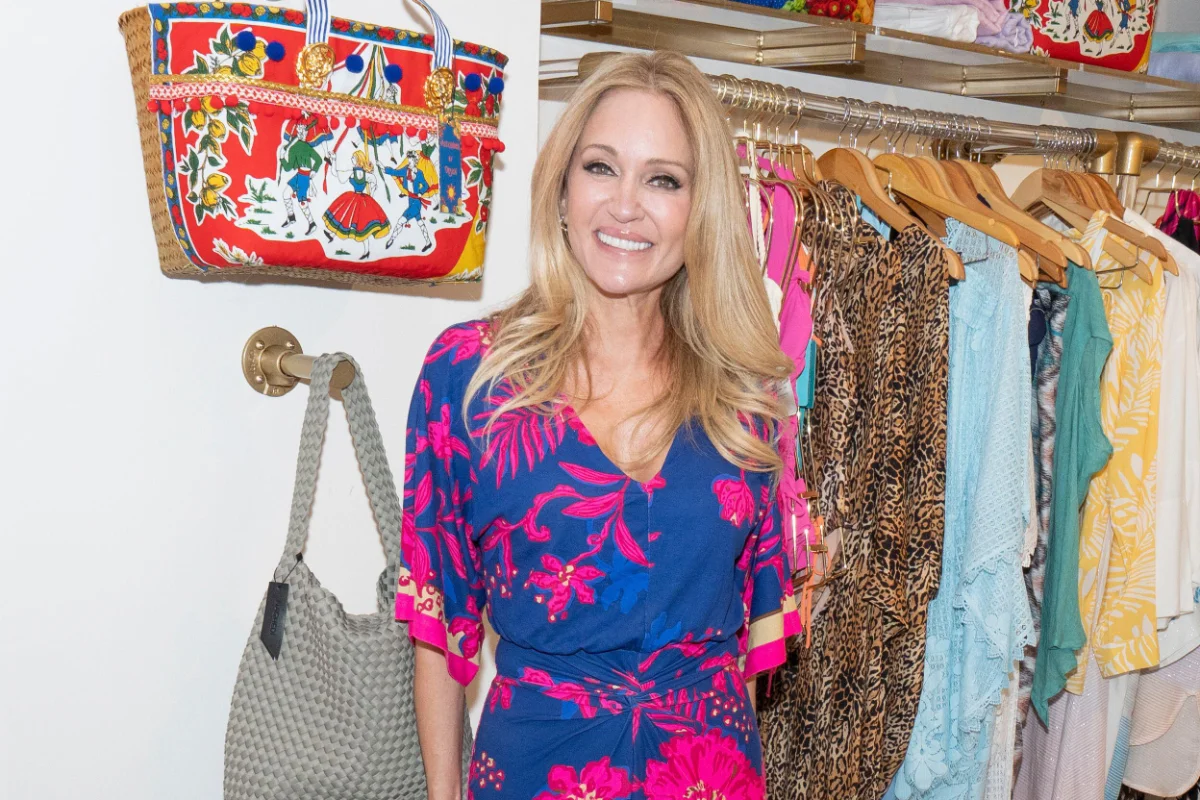Off Script: How Leesa Rowland Made Philanthropy Her Power Move
Explore how Leesa Rowland’s shift from entertainment to nonprofit leadership highlights charitable influence across business, media and social spheres

Leesa Rowland is not only an actress and familiar face in society circles but also a nonprofit founder who has shaped her public influence well beyond the screen. Her recent celebration at Marina St. Barth in Southampton marks another chapter in how public figures can use charitable leadership to redefine their careers and reputations. The event, hosting notable attendees including Jean Shafiroff, Victoria Schneps and financier John Paulson, demonstrates how nonprofit leadership creates networking opportunities that traditional entertainment industry roles rarely match.
From Celebrity to Cause
The daughter of an artist and college professor from Austin, Texas, she trained at the world-renowned Stella Adler Studio in Los Angeles before building credits in film and television. Yet her identity as president and founder of Animal Ashram , established in 2013, has become equally central to her public profile.
We don’t run ads or share your data. If you value independent content and real privacy, support us by sharing.
The question isn’t why someone in entertainment would support animal welfare—many do. The more interesting consideration is why Rowland chose to create, rather than simply join, a nonprofit organisation. Her background includes decades of involvement with Last Chance for Animals since 1989 and a lifelong commitment to veganism. Yet founding Animal Ashram positioned her as a leader rather than a supporter, fundamentally changing how she operates in both philanthropic and social circles.
The Value of Founding vs Joining
Research shows that founding nonprofits allows celebrities to create missions aligned with their passions , offering deeper leadership roles and personal branding opportunities compared to supporting existing organisations. While ambassador roles at established charities provide visibility, founding a nonprofit grants control over messaging, direction and partnerships.
Rowland’s long-term activism with Last Chance for Animals established her credibility in animal welfare, but her transition to founding Animal Ashram demonstrates the difference between participation and ownership. Founding nonprofits represents a form of social entrepreneurship that allows public figures to build authority and influence whilst addressing causes they care about.
Entertainment figures who establish their own charitable organisations gain access to a different tier of networking, from board positions to speaking engagements and cross-sector partnerships. They become reference points for their causes rather than simply advocates, opening doors that traditional industry connections cannot match.
Credibility Through Purpose
Nonprofit leadership fundamentally alters public perception, establishing authority beyond one’s original field. For entertainment figures, this credibility opens networking avenues across business, politics and philanthropy. Corporate and social responsibility has become central to modern business leadership, integrating with entertainment careers and providing leaders with advantages in advocacy and business relationships.
Rowland’s position illustrates how charitable leadership creates cachet that transcends industry boundaries. Her Hampton’s celebration brought together fashion figures like designer Carole Alexander, business leaders and media personalities—a cross-section that reflects the networking power of purposeful leadership. This differs markedly from entertainment industry events, which typically remain within sectoral boundaries.
The credibility factor extends beyond social networking. Celebrity-founded nonprofits provide opportunities for genuine engagement and career development whilst supporting important causes. For someone like Rowland, who continues exploring dramatic roles and developing comedy skills, her nonprofit leadership provides a professional foundation that spans multiple interests.
Event as Case Study
Rowland’s Marina St. Barth celebration serves as a living case study of how nonprofit leadership drives wider opportunities. The event combined fashion, business, media and philanthropy, drawing attendees from across social and professional spheres. Her involvement boosted the event’s profile whilst positioning her as someone who brings different circles together.
The afternoon celebration, honouring her new cover in Mann About Town magazine, benefited Hamptons Summer Songbook by-the-Sea, a musical initiative produced by Donna Rubin and Josh Gladstone of LTV. This partnership demonstrates how nonprofit founders can leverage their positions to support other causes whilst maintaining visibility across multiple cultural spheres.
Notable guests included Peter Thomas Roth, Larry Wohl, Maribel Lieberman and Kobi Halperin, alongside fashion and media figures. The diversity of attendees reflects how charitable leadership attracts cross-sector relationships that entertainment industry connections alone rarely provide. Even John Paulson, the billionaire financier, took time to greet guests—illustrating the networking reach that purposeful leadership generates.
Beyond the Red Carpet
Rowland’s approach foreshadows a playbook for others seeking to translate public profile into lasting credibility. Turning professional success into social impact is helping redefine what influence looks like in cultural circles, moving beyond traditional entertainment industry metrics toward impact-based authority.
The Southampton celebration represents more than social networking—it demonstrates how charitable leadership creates opportunities that span business, media and cultural spheres. For public figures seeking influence beyond their original field, Rowland’s path from screen to cause leadership offers a template that prioritises purposeful engagement over industry climbing.
This evolution reflects broader changes in how credibility is built and maintained. Many powerful organisations started as volunteer-led initiatives , including major advocacy groups that now shape policy and public opinion. Rowland’s Animal Ashram follows this tradition, using charitable leadership as a foundation for wider influence that extends well beyond entertainment industry boundaries.
Visit leesarowland.net for more information.